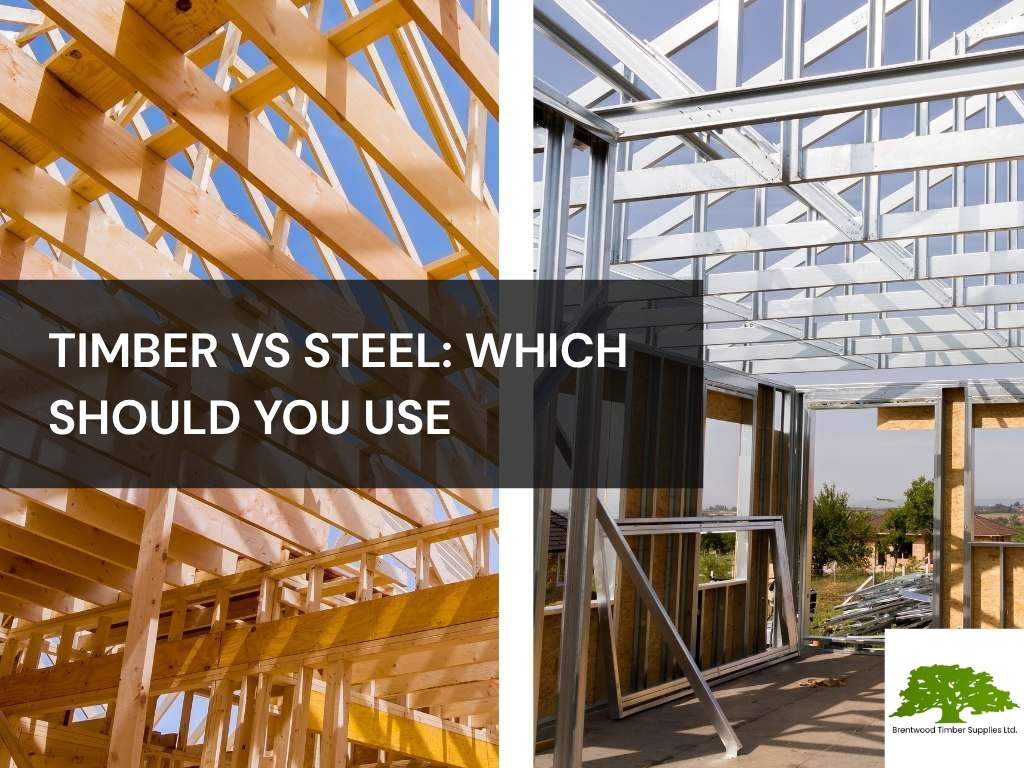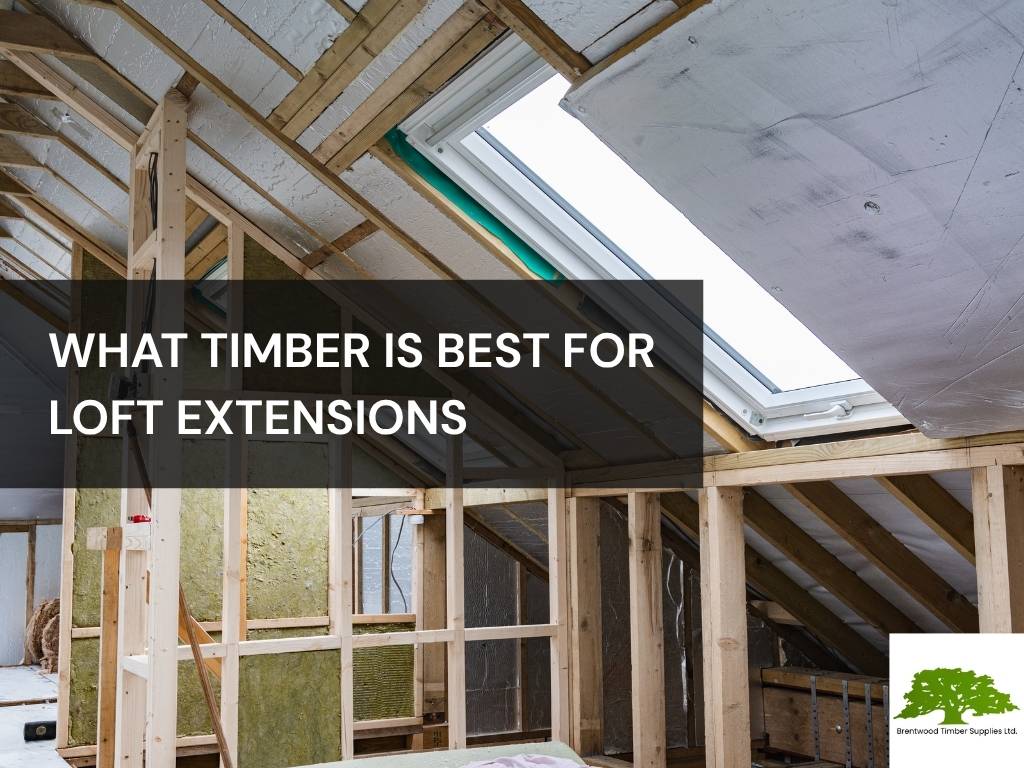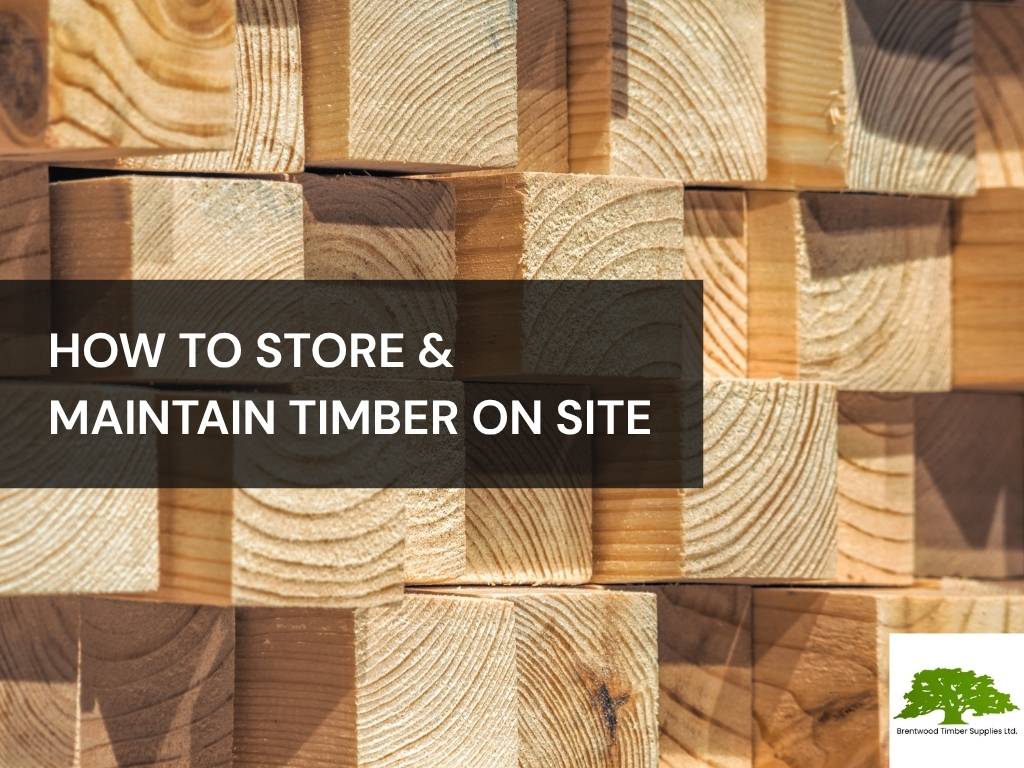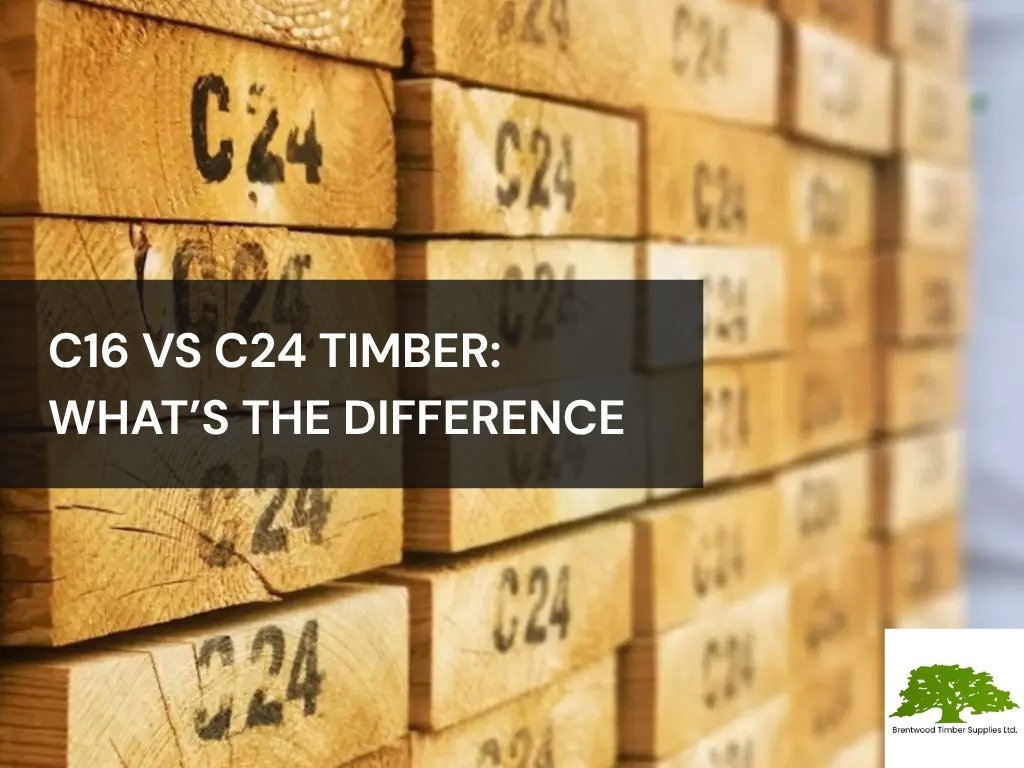When embarking on a construction project, whether it’s a major loft conversion or a simple DIY bookshelf, the type of timber you choose is crucial. Two of the most common grades you’ll come across are C16 and C24 timber. Understanding the differences between these two can save you time, money, and potential headaches down the line.
What is C16 Timber?
C16 timber is a standard grade used widely in the UK, making it a common choice for many construction projects. This grade is sufficient for most general construction purposes, providing a balance between strength and cost-effectiveness. It’s known for its adequate strength and is often used in situations where the timber isn’t heavily stressed, meaning it’s ideal for projects that don’t require the highest level of structural integrity.
If you’re building a garden shed, some basic floor joists, or even simple wall framing, C16 is usually more than adequate. Its versatility makes it a favourite among DIY enthusiasts and tradespeople alike.
Additionally, C16 timber is widely available and easier to source, which can be a significant advantage when working on a tight schedule. The grading process for C16 timber involves visual inspection, which ensures that it meets the necessary standards for construction use but doesn’t require the rigorous testing that higher grades undergo.
This means you get a reliable material that’s perfect for non-critical applications. Despite its lower cost, C16 timber can provide excellent performance for a wide range of projects, from small-scale DIY tasks to larger construction undertakings.
What is C24 Timber?
C24 timber, on the other hand, is a higher grade, offering superior strength and durability compared to C16. This type of timber is typically imported and has to meet stricter quality controls, making it ideal for more demanding construction tasks.
Because it undergoes more rigorous testing and grading processes, C24 timber is often used in situations where structural integrity is paramount. If you’re working on a project where the strength and stability of the materials are crucial—like loft conversions, roof supports, or floor joists in high-traffic areas—C24 is often the better choice.
The higher grade means C24 timber has fewer knots and defects, providing a cleaner and more uniform appearance. This can be particularly important in projects where the timber will be visible or where aesthetics matter. The added strength and reliability of C24 also mean it can span greater distances without bending or sagging, providing better long-term performance.
For critical load-bearing applications, investing in C24 timber can offer peace of mind, ensuring the safety and stability of the structure over time. Despite the higher cost, many builders and tradespeople prefer C24 for its dependable quality and superior performance in demanding construction scenarios.
Differences Between C16 and C24 Timber
Strength and Durability: C24 timber has fewer knots and defects, meaning it can handle greater loads and stresses. This makes it perfect for projects requiring high structural integrity. C16, while strong, isn’t as robust and has more visible imperfections.
Cost: Because C24 timber is stronger and of higher quality, it’s also more expensive. The cost can be a significant factor, especially if you’re working on a tight budget. C16 timber, being more affordable, is often the go-to for non-critical structures.
Uses:
- C16: Suitable for general construction like internal stud walls, basic floor joists, and garden structures.
- C24: Ideal for structural applications such as roof joists, loft conversions, and load-bearing walls.
Quality Considerations
The quality of timber can affect both the longevity and safety of your construction. While C16 is sufficient for many projects, opting for C24 can be a smart move for critical parts of a build. Personally, we’ve seen loft conversions where C24 made all the difference in preventing sagging and maintaining structural integrity over the years.
When to Choose C16 Timber
- Budget Constraints: If you’re looking to keep costs down and the project isn’t structurally demanding, C16 is perfectly adequate.
- General DIY Projects: For tasks like garden furniture, non-load bearing walls, and simple framework, C16 works well.
When to Choose C24 Timber
- Structural Projects: For anything that will bear significant weight or requires high strength, C24 is the way to go. This includes loft conversions, roof supports, and critical load-bearing structures.
- Long-Term Durability: If you want your project to last and remain sturdy over time, the investment in C24 is worth it.
C16 vs C24? Final Thoughts
Choosing between C16 and C24 timber ultimately depends on the specific needs of your project. Assess the importance of strength, budget constraints, and the nature of the construction. Both have their place in construction, and understanding their differences can help you make an informed decision.






